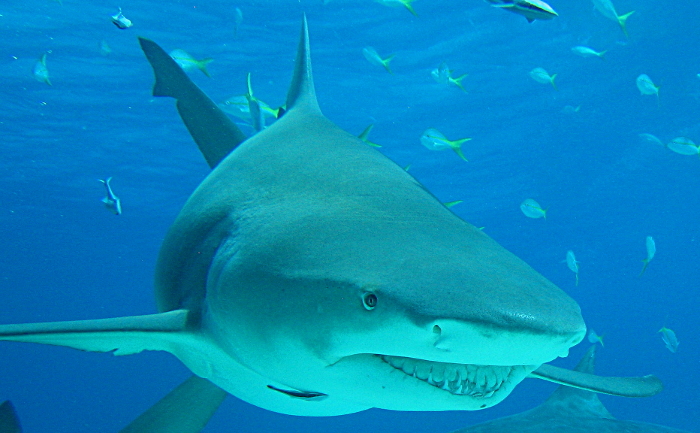Rebuttal to Shiffman and Hueter, Shark Finning Fisheries Lobbyists
"The
Shark Fin Sales Elimination Act"
is
considered to be vital in the fight against shark finning. Yet shark
fisheries lobbyists David Shiffman and Robert Hueter are doing their
best to block it. They have published a paper opposing the
legislation, which has been echoed by the press in ways suggesting
that banning the shark fin trade in the United States could be "bad
for sharks."
But their
short and vacuous paper gives only three reasons to support their
position and concerns itself with the well-being of shark fisheries,
not sharks.
Firstly,
they state that passage of the Act will "undermine decades of
progress made towards ensuring sustainable shark fisheries in the
United States and around the world." But in the absence of any
evidence or reasoning in support this allegation, it remains nothing
more than an opinion. The statement is neither scientific nor relevant to the real issue.
The second
reason given is that the legislation "will likely have little
effect on global shark mortality." Likely?
This too is just an opinion.
Indeed, the facts indicate that the extinguishing of the shark
fin trade inside the US will strike a hard blow and weaken the
international fin racket, much of which is in criminal hands. The
sharks being caught up by finning are those species at the highest
risk of extinction, and the US remains the seventh worst nation in the world in supporting shark finning.
The third
reason given is that if the Shark Fin Sales Elimination Act is
passed, it will "contribute to the misconception that demand for
shark fin soup is the only threat facing shark populations
worldwide."
They have
an assumption that a "misconception" exists and that it is
a reason for the United States to continue to support shark finning.
This absurd statement should have prevented it from being published
in the first place.
And those
are the only "reasons" the authors could find to use to argue against
this important piece of legislation! Indeed, their weak arguments actually underline the importance of the bill.
The authors
then go on to emphasize how complicated the subject is, so much so
that others don't understand it, which is a common theme in
Shiffman's papers. He presents himself as an authority with important
information for the enlightenment of others, while subtly insinuating
that conservation efforts are somehow on the wrong track. But if you
try to find real science in his articles you will come up empty
handed.
Shiffman
has admitted to being financed by everything from Sharknado2 to a
variety of fishing interests, and this latest paper is only one in a
series of articles he has published in the effort to give the
scientific ring of authority to shark fishing and finning.
When
industry finances academic research papers, the conclusions drawn will always favor
their interests, and once published, those ideas are accepted as being
scientific. Thus, paying for 'science' provides the fishing industry
with a way to launder biased, non-scientific ideas into a form that
will have the same credibility as pure research, just as criminals
launder money. Remarkably, the academic community accepts this
practice, and it is used openly by the fishing industry. (More here)
Pure research, such as the global study of shark depletion carried out by the
International Union for the Conservation of Nature's Shark Specialist
Group (IUCN SSG) found that fisheries management
has failed this entire line of animals,
which are of incalculable ecological importance. Their
findings are of even more concern because catches
are believed to be three or four times greater than reported. Most
catches of sharks and rays are neither recorded nor reported, are not
regulated, and are discarded at sea.
Representatives
Ed Royce and Gregorio Kilili Camacho Sablan introduced the The
Shark Fin Sales Elimination Act on
March 9, 2017. If passed, it will effectively remove the United States from the
global shark fin trade as well as re-establishing the country as a
leader in oceanic and shark protection.
Ila France Porcher




Comments